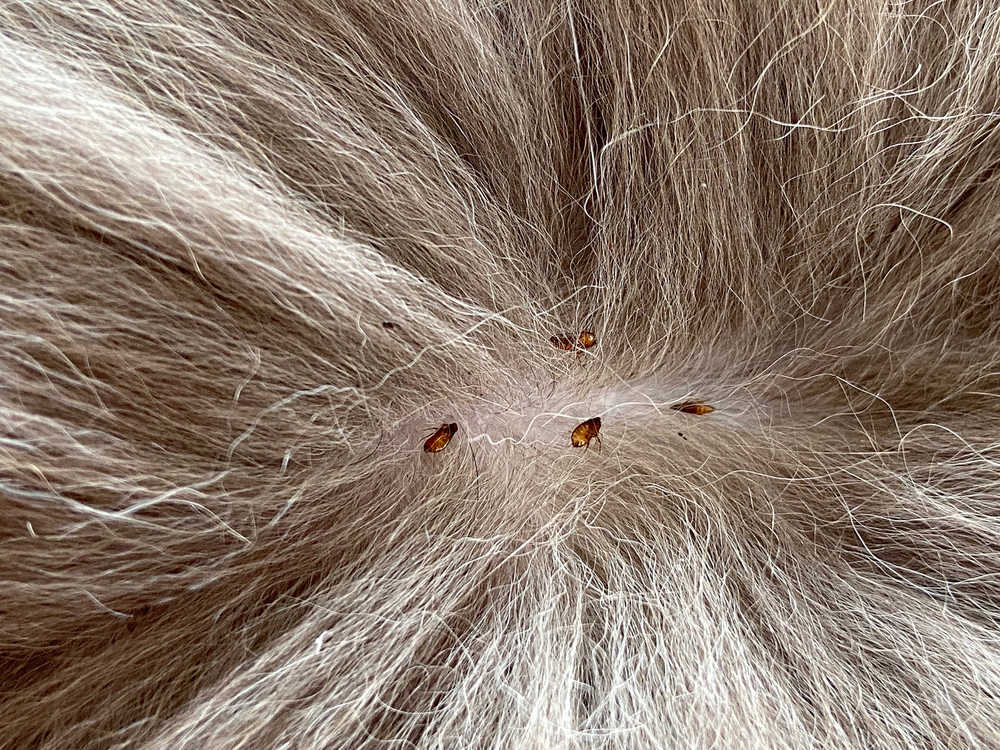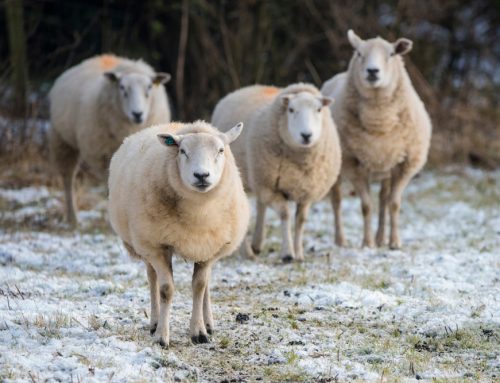Parasites can cause many dangerous issues for your pet, and some can remain active year round. Our team at Sale Creek Veterinary Services wants to explain why continuous parasite prevention is important to keep your pet healthy.
Cats and dogs need year-round protection against fleas
Fleas can survive near freezing temperatures, and in temperate areas such as Tennessee, they can remain active all year long. When temperatures become uncomfortable for fleas, they tend to seek more hospitable conditions, such as your warm home. These parasites cause many concerning issues for your pet.
- Flea bite sensitivity — Many pets are allergic to a protein found in flea saliva, and one flea bite can cause a reaction. Affected pets are intensely itchy and frequently scratch, bite, chew, and rub excessively. The fleas must be completely eradicated from your pet’s coat and environment to relieve their signs.
- Tapeworms — Fleas can transmit tapeworms to your pet if they ingest an infected flea while grooming. Tapeworms attach to your pet’s gastrointestinal tract to gain nutrients. Signs include weight loss, finding tapeworm segments on your pet’s hind end or in their feces, and scooting behavior, when your pet drags their hind end across the floor.
- Anemia — Puppies and kittens with a heavy flea infestation can develop anemia. Signs include lethargy and pale mucous membranes.
Cats and dogs need year-round protection against ticks
Ticks are extremely hardy creatures that take shelter during cold weather in tall grass and under accumulated leaves. They will remain active as long as the climate remains above freezing and is not too wet. Many tick-transmitted diseases, including Lyme disease, anaplasmosis, ehrlichiosis, and babesiosis, can affect your pet. These diseases, whose signs include lethargy, swollen lymph nodes, joint pain, and fever, frequently manifest similarly. In some cases, pets develop bleeding abnormalities, resulting in unexplained bruising and bleeding. Tick-borne illnesses are typically responsive to a particular family of antibiotics, but treatment can be prolonged and expensive. In addition, some pets have long-lasting effects from the disease.
Cats and dogs need year-round protection from heartworms
Mosquitoes transmit heartworms, which cause significant damage to your pet’s heart, lungs, and vasculature. If you take a seasonal break from your pet’s heartworm preventive, and an unpredictable weather pattern causes mosquitoes to emerge early, or allows them to stay active for longer than anticipated, your pet is put at risk. Pets are affected in different ways.
- Dogs — Since dogs are natural heartworm hosts, the parasites can mature, mate, and produce offspring while living in your dog’s heart. In the early stages, signs are rare, but as the disease progresses, signs include a mild cough, exercise intolerance, and weight loss. Treatment is dangerous, and requires careful management so that the sudden parasite die-off does not result in death.
- Cats — Cats are atypical hosts, and most worms in cats can’t survive to the adult stage. However, immature worms can still cause significant problems for your cat. Many cats don’t exhibit signs until their condition has progressed significantly. Signs include asthma-like symptoms, difficulty walking, and sudden death. No treatment is available for heartworms in cats, so prevention is the only way to manage their disease.
Cats and dogs need year-round protection from intestinal parasites
In addition to tapeworms, cats and dogs are affected by numerous intestinal parasites, including roundworms, whipworms, hookworms, giardia, and coccidia. Intestinal parasites are usually transmitted to pets when they eat substances contaminated by infected feces. Puppies and kittens can also be infected through their mother’s placenta and milk. Signs include vomiting, diarrhea, weight loss, lethargy, and decreased appetite. Our veterinary professionals will prescribe an appropriate deworming medication if your pet is affected.
Pasture pets need year-round protection from internal parasites
Pasture pets, such as sheep, goats, llamas, and alpacas, are affected by internal parasites year-round. Common parasites that cause problems for sheep and goats include:

- Lung worms — These parasites irritate the bronchioles inside the lungs, causing coughing.
- Stomach worms — These parasites will destroy the stomach lining to access the bloodstream. Signs include abdominal pain, diarrhea, anemia, and weight loss.
- Liver flukes — These parasites burrow into the liver, causing damage that eventually results in waste products accumulating in the bloodstream.
- Coccidia — These parasites destroy the intestinal lining. Signs include diarrhea and weight loss.
Common parasites that cause problems for llamas and alpacas include:
- Meningeal worms — These parasites migrate through the spinal cord, resulting in signs that include incoordination, paralysis, circling, and blindness.
- Gastrointestinal parasites — Numerous gastrointestinal parasites can affect camelids, and cause signs that include weight loss, lethargy, pale mucous membranes, poor growth, and poor lactation.
The rising concerns about anthelmintic resistance has led to different management strategies to control parasites in pasture pets, without exacerbating resistance. These strategies include:
- Fecal egg counts — Fecal egg counts should be performed regularly on 10 percent of each production group, and dewormers should only be administered based on these results.
- Pasture rotation — Rotational grazing is important to decrease parasite burden.
- Waste removal — Dung piles should be completely removed at least several times a week.
Committing to year-round parasite prevention will help keep your pet happy and healthy. If you would like to discuss the best parasite prevention program for your pet, contact our team at Sale Creek Veterinary Services, so we can protect them from unwanted pests.







Leave A Comment